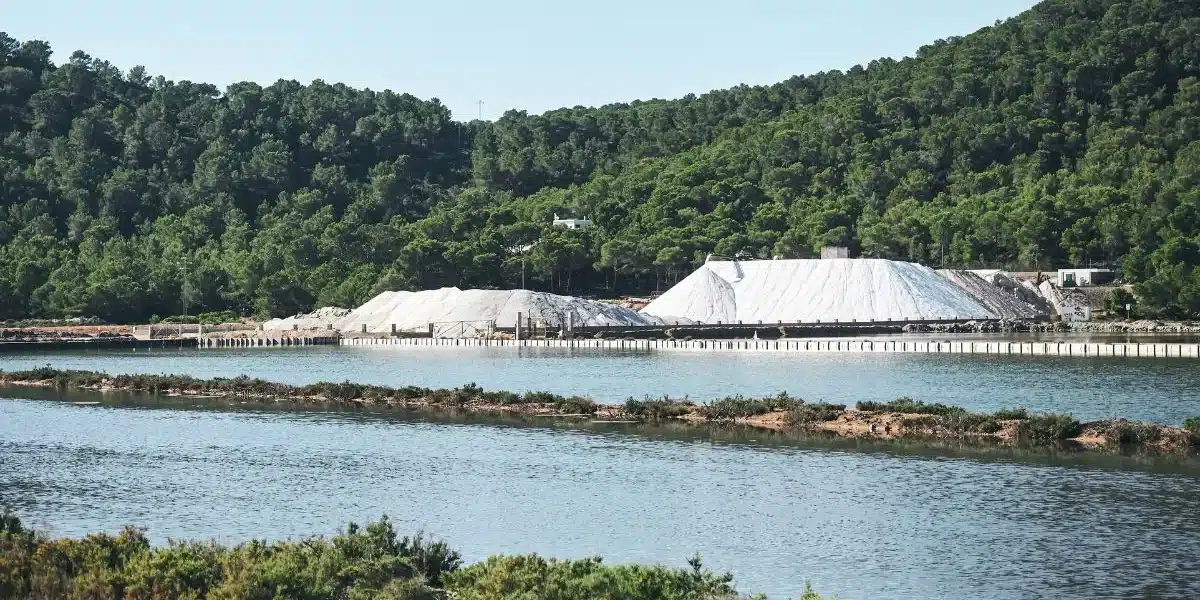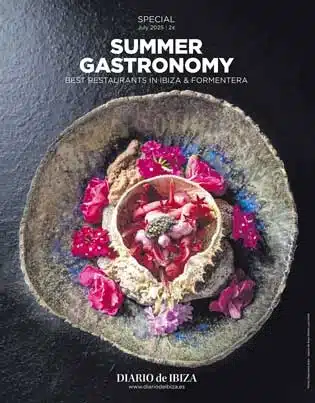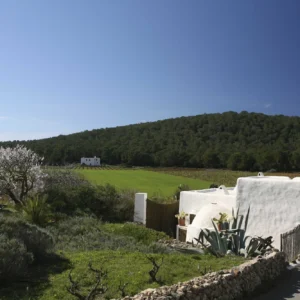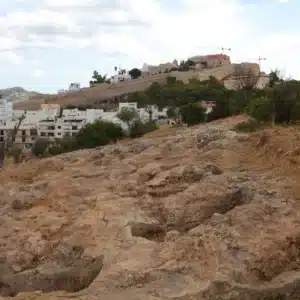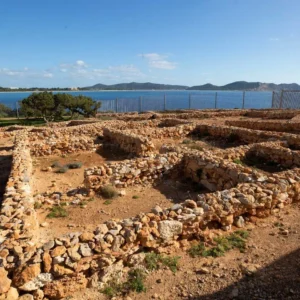For centuries, salt has been at the heart of Ibiza’s history and culture. Often referred to as ‘white gold’, salt production was a driving force behind the island’s economy long before it became known for tourism and nightlife. The unique geography and climate of Ibiza, with its natural salt flats and long sunny days, made it an ideal location for the extraction of salt from seawater.
From the Phoenicians to the present day, salt has shaped the island’s development, contributing not only to its economy but also to its cultural and environmental identity. Even today, salt remains a key part of Ibiza’s story, with artisanal production and ecological conservation efforts keeping the legacy alive.
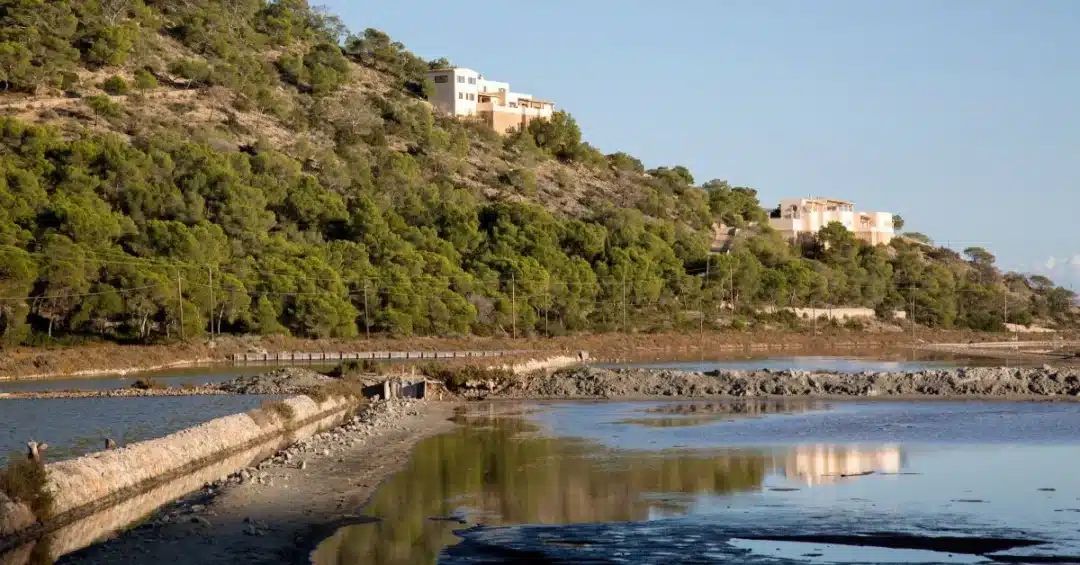
Salt production in Ibiza’s history
Ibiza’s connection to salt dates back over 2,500 years, to the time of the Phoenicians. When they settled on the island in the 8th century BC, the Phoenicians established the first saltworks in the Ses Salines area, which remains one of the most historically significant locations today. These early settlers recognised the island’s unique geographic features—a combination of saltwater lagoons and warm, sunny climate—that made it ideal for natural salt production.
Salt quickly became one of the island’s most valuable exports. It was essential in preserving food, especially before the advent of refrigeration, and was used as a currency in many ancient societies. The Romans, who later conquered the island, further developed salt production, incorporating it into their expansive trade networks.
Salt also played a vital role in Ibiza’s interaction with other Mediterranean cultures, including the Carthaginians, who expanded the island’s trade routes, and the Moors, who controlled the island for several centuries during the Middle Ages. Throughout these periods, the salt flats of Ses Salines were continually cultivated, cementing Ibiza’s reputation as a hub of salt production.
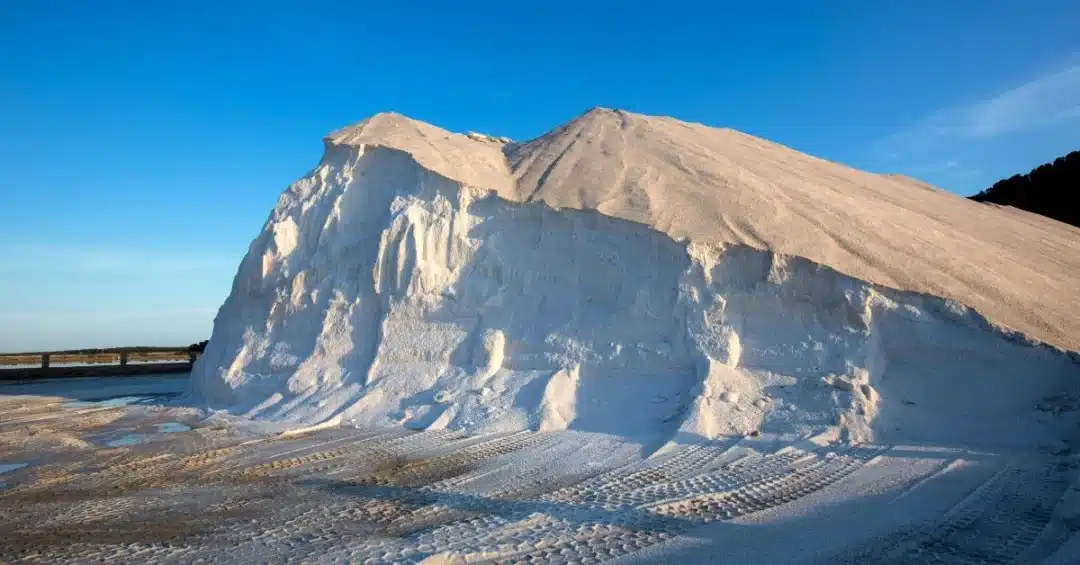
The Spanish empire and the salt monopoly
By the 18th century, the island had become part of the burgeoning Spanish Empire, and salt was at the heart of its economic and political life. The Spanish crown imposed a monopoly on salt production in Ibiza, making it a state-controlled commodity. During this period, salt was more than just a preservative or a trade good; it became a powerful tool of taxation and control. Local Ibizans were required to give a portion of their salt production to the crown, making salt a symbol of both wealth and oppression.
The salt pans in Ses Salines, which had been developed and expanded by various rulers over the centuries, reached their peak during the 18th and 19th centuries. Large amounts of salt were exported to mainland Spain and other parts of Europe, contributing significantly to the local economy. However, salt workers in Ibiza lived in difficult conditions, toiling long hours under the harsh sun for minimal pay. Despite this, the salt industry provided a livelihood for many Ibizan families.
Decline and revival of salt production
The advent of modern refrigeration and the decline of salt’s role in food preservation in the early 20th century led to a downturn in Ibiza’s salt industry. By the mid-1900s, the salt pans were no longer the economic powerhouse they once had been. However, salt production never disappeared completely from the island. Instead, it adapted to new demands and contexts.
In 2001, the salt flats of Ses Salines were declared a natural park, reflecting a shift in how Ibiza’s salt heritage was perceived. No longer just a site of industrial production, the salt flats were recognised for their ecological importance. The wetlands of Ses Salines are home to diverse species of wildlife, including flamingos and other migratory birds that pass through on their way to Africa. Today, salt production in the area continues on a smaller scale, largely for artisanal and gourmet markets, but the salt pans are now equally valued for their environmental significance.
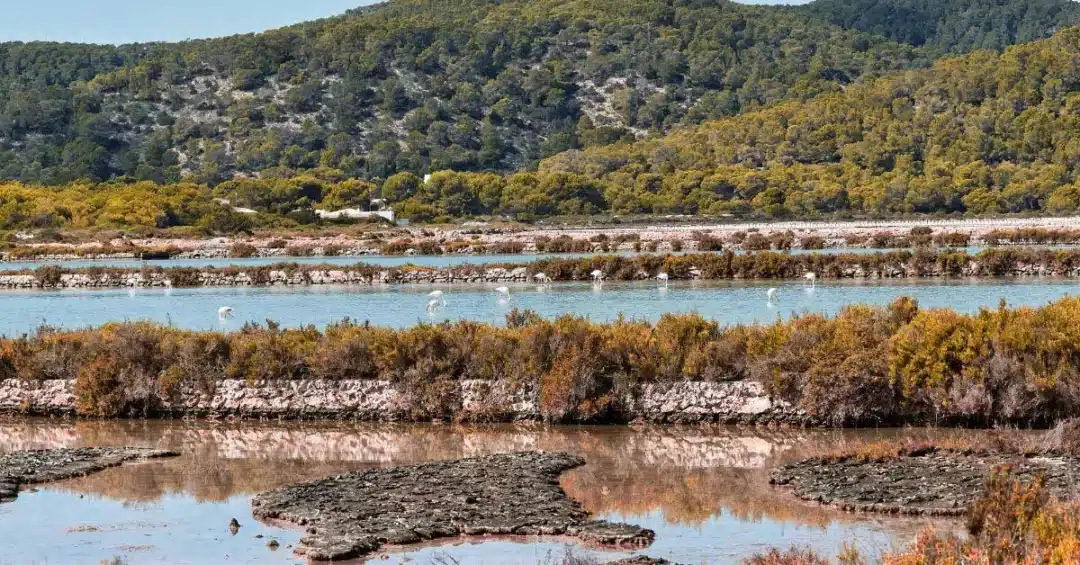
Modern salt production and its impact on Ibiza’s economy and tourism
In the present day, salt production has shifted from being a primary economic activity to a cultural and environmental touchstone. Small-scale production continues, primarily focused on high-quality, artisanal salt products marketed to tourists and gourmet chefs. ‘Flor de Sal’, the delicate, hand-harvested salt crystals that form on the surface of the salt pans, has become a premium product, sold in local markets and exported around the world.
The modern salt industry in Ibiza may not have the same economic weight it did in centuries past, but it still holds a special place in the island’s identity. Salt from Ses Salines is considered a symbol of local craftsmanship and sustainability, contributing to Ibiza’s reputation for high-quality, authentic products. It also plays a role in promoting sustainable tourism, as visitors are drawn to the unique beauty of the salt flats and the natural park surrounding them.
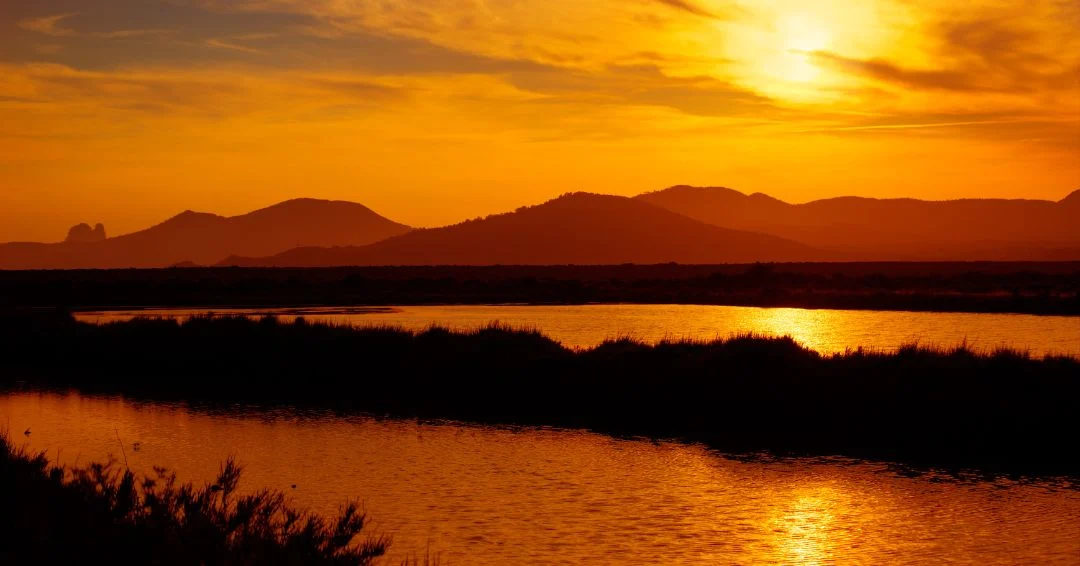
Today, guided tours of the Ses Salines Natural Park offer visitors the opportunity to learn about the island’s salt production history and its environmental significance. These tours are not only educational but also reinforce the link between Ibiza’s past and present. The salt flats, with their shimmering white surfaces and pink-tinted waters, are now as much a tourist attraction as they are a working landscape.
Salt has played a central role in the island’s history for millennia, shaping its economy, culture, and landscape. From the time of the Phoenicians through the height of the Spanish Empire, salt was a commodity that brought wealth and influence to the island. Today, while its economic importance may have diminished, salt remains a symbol of Ibiza’s rich heritage and its unique relationship with the natural environment.
In the 21st century, Ibiza’s salt industry is a reflection of the island’s ability to adapt to changing times while preserving its cultural roots. As both an artisanal product and a key feature of the island’s natural beauty, salt continues to hold a special place in the heart of Ibiza, connecting its ancient past with its sustainable future.
